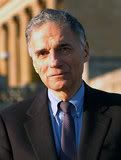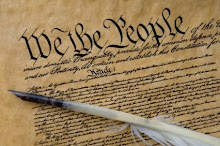9 Killed in Finnish School Shooting
Obama Ahead in Key Battleground States
Oil Falls as Stock Losses Signal Concern Over US Bailout Plan
The politics of the bail-out
News roundup: The $700 billion bailout; immigration down
Bernanke urges fast action from Congress
What happens if the $700 billion bailout plan doesn't work?
RSC pitches 'market-based' alternative to bailout
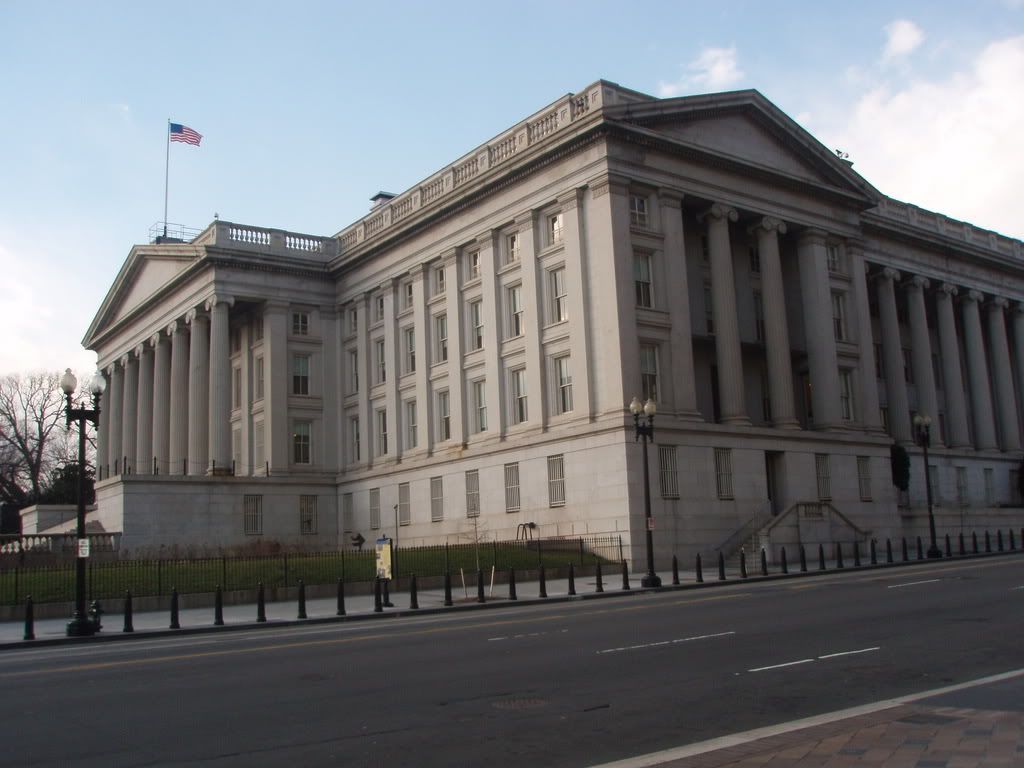
Fed and Treasury Offer to Work With Congress on Bailout Plan
Paulson, Bernanke Push New Plan to Cleanse Books (Update2)
US Treasury Announces Plan to Insure Money-Market Holdings
McCain, Obama seize on Wall Street woesNorth Korea Pledges to Restart Nuclear Reactor
SEC Issues Temporary Ban on Short-Selling
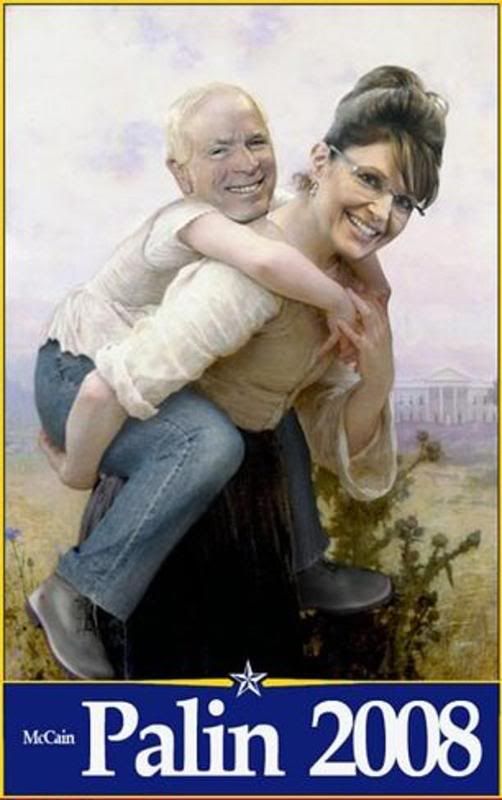
Palin's husband will not testify
Palin e-mail hack details emerge
What Russia Wants : Food for Thought.
Starbucks stops serving milk as China crisis snowballs
Biden: Rich should pay moreLawmakers cede to Schwarzenegger budget demands
Startle Response Linked To Political Preferences
Vt. candidate vows to prosecute Bush for murder if she wins
What happens when we die? 'Out-of-body' experiences probed
Knifed 666 times each and eaten
By LYNSEY HAYWOOD
The gang of Devil worshippers butchered their victims and roasted them on a bonfire before devouring their flesh.

Horror ... the upturned cross marks where the remains were found
Horrified cops found body parts dumped in a pit beside an upside-down cross, a symbol used in Satanic worship.
The victims all suffered 666 knife wounds — the number associated with the Beast, or Antichrist, and featured in horror films such as The Omen.
The pals, three girls and a boy aged 16 or 17, were all Goths.
They were lured one by one to a cottage and forced to get drunk before being butchered.
Hair from them was found in the embers of a fire the gang lit under a tree.

Suspects ... Ksenia Kuznetsova and Nikolai Ogolobyak
Police believe the teenagers were cooked in the flames before their flesh was devoured.
Their private parts had also been cut off in the sickening ritual in a rural area of Russia.
After police arrested eight suspected members of the ring, one boasted how they had previously dug up the grave of a newly-dead girl and eaten her heart.
Another said he did not expect to be punished, saying: “Satan will help me to avoid responsibility. I made lots of sacrifices to him.”
And a third said he had got fed up with God for not making him rich and that “things improved” after he started praying to the Devil.
The discovery in Yaroslavl, 300 miles from Moscow, sent a shudder across Russia — where Satanists are feared to have committed a string of mutilations and killings.

Number ... 666 is Devil's
The victims, who all disappeared in June, were named as Anya Gorokhova, Olga Pukhova, Varya Kuzmina and Andrei Sorokin.
The upside-down cross marking what was left of their bones and scalps had a small animal nailed to it.
Police began tracing the gang after finding out that all the victims had made phone calls to alleged leader Nikolai Ogolobyak.
Locals said they all knew Ogolobyak, whose grandmother revealed he had sung in the local church choir as a boy.
The rest of the cult were described by ex-teachers as having been of low intelligence and moody at school.
Three were named by police as Ksenia Kuznetsova, Alexander Voronov and Anton Makovkin.
The dad of victim Andrei said: “My son said he had Goths and Satanists among his friends.
“I wasn’t scared. I thought, ‘Well, let him spend his time sitting around a cemetery — there’s not much harm in that, is there?’"
Russia has seen a series of gruesome murders, rapes and desecrations linked to Satanic cults.
Moscow alone has 15 whose worship is thought to revolve around symbols such as 666, an upturned five-pointed star within a circle and the swastika.
Devil worshippers believe in putting themselves first and their core values include pride, indulgence, ambition and meeting sexual desires.
In Britain, about 400 people list their religion as Satanism. Followers meet at a “Grotto” for rituals with candles and swords run by witches and warlocks.
Comedian Sabina Guzzanti 'insulted Pope' in poofter devils gag
I didn't know jokes about the Pope are illegal in Italy. To be honest, I thought the joke was funny. Maybe the comedian should move to a place....where speech is protected from government.On the one hand, she openly broke the law. On the other hand, her speech was neither harmful, nor threatening to the Pope's power. I'm sure there are worse crimes in Italy than a joke about "His Holiness" being sodomized by demons. How about organized crime? I think the mafia is more dangerous to government stability than a joke.
Minister: Organized crime link to soccer violence
I mean, really. It's a joke..... about gay demons.
There is no such thing as demons, gay or otherwise!
Well, there is no God either, but why split hairs? Lighten up Vatican. Drink some blessed wine, and relax.
"Any society that would give up a little liberty to gain a little security will deserve neither and lose both."
Benjamin Franklin
The Department of Homeland Security is the largest restructuring of the federal government since 1947. The increased responsibilities and powers involve the combining of the following entities: the United States Coast Guard, the Army, Navy, Marines, Air Force, the Secret Service, the Border Patrol, the Civil Air Patrol, and many other executive branches. In all, over 100 government departments are combined in effort to ensure America's safety.
Homeland Security Threatens Civil Liberty
Yet our safety may come at a cost. The following are actions made by our government....to protect us.
The Real ID Act of 2005 is a law used to impose security measures and regulations for driver's license and state IDs. The following will be implemented:
- Establishing new national standards for state-issued driver licenses and non-driver identification cards.
- Waiving laws that interfere with construction of physical barriers at the borders.
- Updating and tightening the laws on application for asylum and deportation of aliens for terrorist activity.
- Introducing rules covering "delivery bonds" (rather like bail bonds but for aliens who have been released pending hearings).
- Funding some reports and pilot projects related to border security.
- Changing visa limits for temporary workers, nurses, and Australian citizens.
There are many reasons to not support this legislation. You can read more about the Real ID Act, and how it will restrict our freedom here: Real ID Act 2005.
Homeland Security is also working on an EMD Safety Bracelet. This bracelet not only serves as airport identification, it acts as a taser. If you misbehave it will zap you. Here's what it will do:
• Take the place of an airline boarding pass
• Contain personal information about the traveler
• Be able to monitor the whereabouts of each passenger and his/her luggage
• Shock the wearer on command, completely immobilizing him/her for several minutes(Want some torture with your peanuts? - Washington Times - Politics)
"EMD" stands for Electro-Muscular Shock Device. We would be required to wear this unit until the plane lands. This letter from the Department of Homeland Security shows great interest in using this technology to "temporarily restrain large amounts of people."
Should government force us to wear shock bracelets to board an airplane?
Do as big brother says; it's for your own good.
Finally there are the Biometric Identification Systems. These simply record our physiological data and use it as a security measure. Retinal eye scans, fingerprints, and facial features are placed into a database to use as identification.
Biometric Identification & Homeland Security: Biometrics Pros and Cons
However, there is a chance this technology will not promote our safety.
In 2006, Barry Steinhardt, director of the technology and liberty project at the American Civil Liberties Union, said that, "The provide one-stop shopping for terrorists who want to single out Americans for kidnapping or worse." (Amy Zalman, P.h.D, About.com)
There is also the chance of ID theft and the violation of privacy with biometric technology.
Then again, safety is more important than privacy. Is it not?
Lipstick on a Hypocrite?
Posted by Jay | 9/11/2008 06:57:00 AM | hypocrite, McCain, Obama, rhetoric | 0 comments »
I listened to the speech in its entirety. The phrase "you can put lipstick on a pig" is a reference to whether, or not, McCain truly seeks change (whatever that may be). McCain claims to seek change in government dealings and actions, yet voted within 90% of Bush Administration policy. If McCain's rhetoric is true, and he intends to induce change, it will be a facsimile of change. In other words, McCain will try to dress up a pig "Bush policy," by enforcing certain changes; despite his agreement with 90% of these policies. I suppose the 10% is analogous to the "lipstick." Whether, or not, you accept Obama's argument is one thing. To accuse Obama of slandering Gov. Palin is another.
Why the hell is this an issue? First people wonder how many houses McCain owns (which is eight, officially). Now they accuse Obama of calling Gov. Palin a pig.
Even IF Obama slandered Palin, so what? Didn't McCain do the same thing?
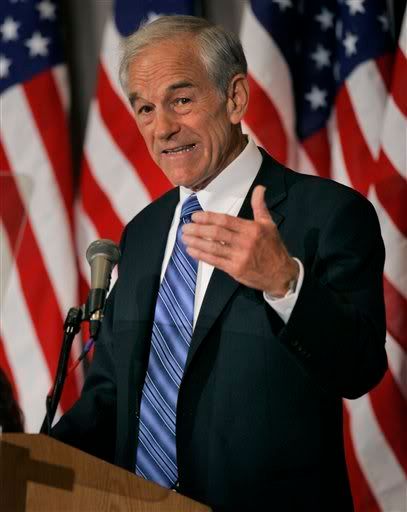
Words cannot express my disappointment in people for not taking Ron Paul seriously. Dr. Paul may have been our last hope for good government. Do yourselves a favor. Read his latest book.
Ron Paul - The Revolution: A Manifesto
In latest news, Dr. Paul refuses to work with Two-Face...er, I mean Bob Barr.
Ron Paul Endorses the Third-Party Field
Paul says he turned down appeal to endorse McCain
Barr asks Ron Paul to be his running mate
Text of Bob Barr’s letter to Ron Paul
Russia to Join Venezuela in Naval Exercise...Developing
Posted by Jay | 9/07/2008 08:45:00 PM | Chavez, Russia, Venezuela | 0 comments »Russia ships to join Venezuela naval exercises in Caribbean
Breaking News from China......
Venezuela postpones jointly military exercise with Russia
Government Bail Out
Posted by Jay | 9/07/2008 12:38:00 PM | Bernanke, Fannie May, Freddy Mack, government"We need laws that specify and limit the conditions for bailouts -- laws that authorize the Treasury to use taxpayer money to counter systemic financial breakdowns transparently and directly"
Alan Greenspan.
I hope government listened to Alan Greenspan.
WASHINGTON PUTTING ASIDE FREE-MARKET IDEOLOGY...
Govt takes over Fannie Mae, Freddie Mac
Government takes over embattled Fannie, Freddie
Full Statement of Treasury Secretary Henry Paulson on Fannie ...
RPT-WRAPUP 1-US plan for Fannie, Freddie to hit shareholders
Woodward Versus the White House
Posted by Jay | 9/05/2008 08:55:00 PM | Bush, White House, Woodward | 0 comments »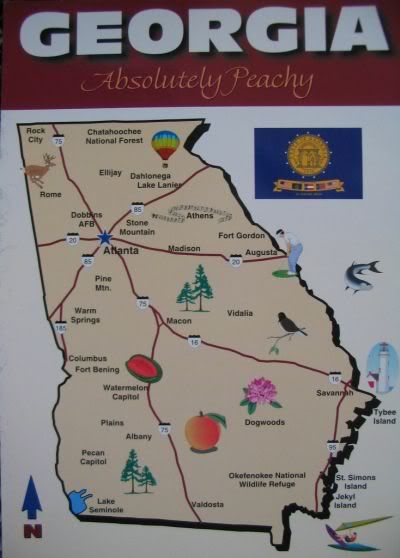
Courts to furlough workers
Georgia budget cuts force delay of Medicaid reimbursements
Ga. State Public Defenders Say ‘No’ to Cuts
Private school scholarships slow to gain support in Georgia
Higgins: Perdue plan 'unconscionable'
Property tax grant sill in limbo
Governor suspends collection of taxes on prescriptions distributed ...
Changes can’t occur without cash
The McCain/Obama Acceptance Speech
Posted by Jay | 9/05/2008 04:28:00 PM | FactCheck, McCain, Obama | 0 comments »The following are two articles posted on www.factcheck.org. They are analysis of the acceptance speeches by both McCain and Obama at their respective conventions.
- McCain claimed that Obama’s health care plan would "force small businesses to cut jobs" and would put "a bureaucrat ... between you and your doctor." In fact, the plan exempts small businesses, and those who have insurance now could keep the coverage they have.
- McCain attacked Obama for voting for "corporate welfare" for oil companies. In fact, the bill Obama voted for raised taxes on oil companies by $300 million over 11 years while providing $5.8 billion in subsidies for renewable energy, energy efficiency and alternative fuels.
- McCain said oil imports send "$700 billion a year to countries that don't like us very much." But the U.S. is on track to import a total of only $536 billion worth of oil at current prices, and close to a third of that comes from Canada, Mexico and the United Kingdom.
- He promised to increase use of "wind, tide [and] solar" energy, though his actual energy plan contains no new money for renewable energy. He has said elsewhere that renewable sources won’t produce as much as people think.
- He called for "reducing government spending and getting rid of failed programs," but as in the past failed to cite a single program that he would eliminate or reduce.
- He said Obama would "close" markets to trade. In fact, Obama, though he once said he wanted to "renegotiate" the North American Free Trade Agreement, now says he simply wants to try to strengthen environmental and labor provisions in it.
McCain mischaracterized Obama’s health care plan:
McCain: His plan will force small businesses to cut jobs, reduce wages, and force families into a government run health care system where a bureaucrat stands between you and your doctor.
 The claim that “small businesses” would have to “cut jobs, reduce wages,” runs counter to Obama’s actual proposal. Obama’s plan would require businesses to contribute to the cost of insurance for employees or pay some unspecified amount into a new public plan. But his proposal specifically says, “Small businesses will be exempt from this requirement.” And it offers additional help to small businesses that want to provide health care in the form of a refundable tax credit of up to half the cost of premiums. We’ll note that neither man has defined what exactly a “small business” is.
The claim that “small businesses” would have to “cut jobs, reduce wages,” runs counter to Obama’s actual proposal. Obama’s plan would require businesses to contribute to the cost of insurance for employees or pay some unspecified amount into a new public plan. But his proposal specifically says, “Small businesses will be exempt from this requirement.” And it offers additional help to small businesses that want to provide health care in the form of a refundable tax credit of up to half the cost of premiums. We’ll note that neither man has defined what exactly a “small business” is.Furthermore, Obama’s plan wouldn’t “force” families into a “government-run health care system.” His plan mandates that children have coverage; there’s no mandate for adults. People can keep the health insurance they have now or chose from private plans, or opt for a new public plan that will offer coverage similar to what members of Congress have. Obama would also expand Medicaid and the State Children’s Health Insurance Program. His plan certainly expands government-offered insurance – and McCain’s doesn’t – but it’s not a solely government-run plan, as McCain implied. And if Obama's public plan turns out to be similar to what federal employees have, as he says it would be, we're not sure how "a bureaucrat" would stand "between you and your doctor." The possible exception would be persons covered by Medicaid or SCHIP.
McCain also made this boast:
McCain: My health care plan will make it easier for more Americans to find and keep good health care insurance.Fair enough. But McCain's plan wouldn't do nearly as well as Obama's. One comparison, by the nonpartisan Urban-Brookings Tax Policy Center, finds Obama’s would reduce the uninsured by 18 million people in its first year, compared with a 1 million reduction under McCain’s plan. TPC made various assumptions about the plans to fill in details each proposal lacks, so those numbers aren’t definitive. We await more comparisons from other experts.
McCain attacked Obama for supporting "corporate welfare" for oil companies:
McCain: [I]nstead of freeing ourselves from a dangerous dependence on foreign oil, both parties and Senator Obama passed another corporate welfare bill for oil companies.The bill McCain is talking about here is the 2005 energy bill, which actually raised taxes on the oil industry a little bit overall – by about $300 million, according to the nonpartisan Congressional Research Service. Meanwhile, McCain himself proposes to cut the corporate rate for all companies – oil included – and that would result in an estimated $4 billion cut for the five largest U.S.-based oil companies, according to the Center for American Progress Action Fund. Obama, on the other hand, is promising that he'll strip oil companies of "tax breaks" to the tune of an amount yet to be determined.
It's true that Obama voted for the 2005 bill. He said he favored the $5.8 billion (over 11 years) that it contained in tax incentives for renewable energy, energy efficiency and alternative fuels. McCain voted against it on the grounds that the $2.6 billion it contained for oil and gas incentives was too much, even though the bill also took away $2.9 billion from the industry, for a net tax increase of $300 million. Describing such a complex measure as "corporate welfare" is misleading.
We found other exaggerations in McCain’s claims about his plan for energy independence:
McCain: We are going to stop sending $700 billion a year to countries that don't like us very much.In fact, the U.S. doesn't pay nearly that much for oil from hostile nations. According to the Energy Information Administration, the U.S. imported 4.9 billion barrels of oil in 2007. At today’s prices, that works out to about $536 billion, still a hefty chunk of change, but considerably less than $700 billion. More important, that's what we pay to all exporting nations, not just those that “don’t like us very much.” We note that 32 percent of U.S. oil imports came from Canada, Mexico and the United Kingdom.
McCain also made sweeping claims about green energy that aren't actually backed up by his policy proposals:
McCain: We will attack the problem on every front. ...We will increase the use of wind, tide, solar and natural gas. We will encourage the development and use of flex fuel, hybrid and electric automobiles.McCain has been quite specific about his proposals to clear the way for building 45 new nuclear power plants, opening offshore areas to oil drilling and spending $2 billion a year for so-called "clean coal" technology. He has also proposed a $300 million prize for developing the first practical plug-in electric car, although General Motors already is working on that and is aiming for delivery of the Chevrolet Volt by 2010, prize or no prize. McCain has also proposed a $5,000 tax credit for consumers who purchase zero emission vehicles
But when it comes to power from wind and tide, McCain's words are blowing in the breeze. His energy plan, which he calls the Lexington Project, proposes no new spending for renewable energy programs. Instead, he proposes to "rationalize the current patchwork of temporary tax credits," but hasn't said what he means by that. As we’ve written before, spokespeople for the wind and solar industries are unsure what this actually means. Finally, we’ll note that McCain himself told supporters at a July town hall meeting that he doesn’t think that renewable energy is likely to be "as much of the solution as some people think." Perhaps not, but if McCain is right his own words are contributing to the public misperception.
McCain repeated his vague promise to make spending cuts:
McCain: Reducing government spending and getting rid of failed programs will let you keep more of your own money to save, spend and invest as you see fit.McCain has not said which programs he considers to be "failed programs." He thus makes the spending cuts sound less painful than they will be should he fulfill his previously stated promise to balance the federal budget by 2013 while also making all Bush tax cuts permanent and adding new cuts of his own. McCain repeated his promise to eliminate "earmarks" from federal spending bills, saying "the first big-spending pork-barrel earmark bill that comes across my desk, I will veto it." That drew applause, but the fact is that earmarks amount to only $16.9 billion in the current fiscal year, according to the Office of Management and Budget. Meanwhile, the deficit is expected to be more than $200 billion in 2009. And McCain's tax cuts will add billions more to future deficits unless offset by spending cuts, which he so far has not been willing to identify. What would he cut?
A McCain adviser, former CBO chairman Douglas Holtz-Eakin, has said that McCain "will provide the leadership to achieve bipartisan spending restraint" and "will perform a comprehensive review of all programs, projects and activities of the federal government" to find programs to cut or eliminate. But that, of course, will come after people have cast their votes.
McCain said, “I will open new markets to our goods and services. My opponent will close them."
McCain may be alluding to Obama’s threat earlier this year to pull out of the North American Free Trade Agreement if Mexico and Canada won't open the deal to renegotiation. Obama said at a Democratic primary debate in Cleveland in February:
Obama, Feb. 26: I will make sure that we renegotiate. … I think we should use the hammer of a potential opt-out as leverage to ensure that we actually get labor and environmental standards that are enforced.But that's far from a threat to "close" markets to U.S. exports.
An expert from a pro-trade group agrees. “It's a stretch to take the heated comment from the Cleveland debate to pull out of NAFTA if it wasn't revised as indicative of a protectionist policy,” Jeffrey Schott, a senior fellow and trade expert at the Peterson Institute for International Economics, told FactCheck.org. “In any event, the position on NAFTA has since been clarified."
In fact, Obama has said he thinks it's unwise to repeal the trade deal, because to do so "would actually result in more job loss ... than job gains." And in a June interview with Fortune magazine, he stated that he didn’t plan on pulling out of NAFTA. "Sometimes during campaigns the rhetoric gets overheated and amplified," he said.
It's true that McCain has been a stronger advocate of free trade agreements than Obama, who supported the trade deal with Oman in 2006 and one with Peru in 2007 but opposed the one with Central America and another with Colombia. But saying he would "close" markets is nonsense.
Finally, we note that McCain and the Republican delegates applied a different standard to the Republican nominee's lofty rhetoric than they did to Obama's.
McCain drew applause with this line:
McCain: We must use all resources and develop all technologies necessary to rescue our economy from the damage caused by rising oil prices and restore the health of our planet.The previous evening, however, McCain's running mate, Gov. Sarah Palin of Alaska, ridiculed Obama for using similar high-sounding words:
Palin, Sept. 3: What does he actually seek to accomplish after he's done turning back the waters and healing the planet?That crack drew jeers and laughter. Perhaps Republicans see a distinction between "healing the planet" and "restor[ing] the health of our planet," but it escapes us.
–by Brooks Jackson, with Viveca Novak, Lori Robertson, Joe Miller and Emi Kolawole
Office of Management and Budget. "FY 2008 Appropriations Earmarks Summary," 28 January 2008.
Congressional Budget Office. "CBO's Baseline Budget Projections," March 2008.
Congressional Research Service. Oil and Gas Tax Subsidies: Current Status and Analysis. Washington: GPO, 2007.
"The Lexington Project." JohnMcCain.com, accessed 5 Sept. 2008.
"U.S. Imports by Country of Origin." U.S. Energy Information Administration, accessed 5 Sept. 2008.
"Spot Prices, Crude Oil in Dollars per Barrel." U.S. Energy Information Administration, accessed 5 Sept. 2008.
The New York Times. "Transcript, the Democratic Debate in Cleveland." 26 Feb. 2008.
Tapper, Jake. "Obama Knocks Clinton, but Wouldn't Ax NAFTA." ABC News, 24 Feb. 2008.
Easton, Nina. "Obama: NAFTA not so bad after all." Fortune Magazine, 18 June 2008.
Obama, Barack. "Why I Oppose CAFTA." Chicago Tribune, 30 June 2005.
Elliott, Philip. "Obama says rivals have failed." The Associated Press, 9 Oct. 2007.
"Remarks for Sen. Barack Obama: AFL-CIO." 2 April 2008. www.barackobama.com, Web site accessed 5 Sept. 2008.
FactChecking Obama
- Obama said he could “pay for every dime” of his spending and tax cut proposals “by closing corporate loopholes and tax havens.” That’s wrong – his proposed tax increases on upper-income individuals are key components of paying for his program, as well. And his plan, like McCain’s, would leave the U.S. facing big budget deficits, according to independent experts.
- He twisted McCain’s words about Afghanistan, saying, “When John McCain said we could just 'muddle through' in Afghanistan, I argued for more resources.” Actually, McCain said in 2003 we “may” muddle through, and he recently also called for more troops there.
- He said McCain would fail to lower taxes for 100 million Americans while his own plan would cut taxes for 95 percent of “working” families. But an independent analysis puts the number who would see no benefit from McCain’s plan at 66 million and finds that Obama’s plan would benefit 81 percent of all households when retirees and those without children are figured in.
- Obama asked why McCain would "define middle-class as someone making under five million dollars a year"? Actually, McCain meant that comment as a joke, getting a laugh and following up by saying, "But seriously ..."
- Obama noted that McCain’s health care plan would "tax people’s benefits" but didn’t say that it also would provide up to a $5,000 tax credit for families.
- He said McCain, far from being a maverick who’s "broken with his party," has voted to support Bush policies 90 percent of the time. True enough, but by the same measure Obama has voted with fellow Democrats in the Senate 97 percent of the time.
- Obama said "average family income" went down $2,000 under Bush, which isn't correct. An aide said he was really talking only about "working" families and not retired couples. And – math teachers, please note – he meant median (or midpoint) and not really the mean or average. Median family income actually has inched up slightly under Bush.
Obama reassured voters that he can pay for all his spending proposals:
Obama: Now, many of these plans will cost money, which is why I’ve laid out how I’ll pay for every dime – by closing corporate loopholes and tax havens that don’t help America grow.
 This is misleading. Even by his own campaign’s estimates, closing corporate loopholes and tax havens won’t pay for all of Obama’s new plans. In July, the campaign told the Los Angeles Times that they estimate the yearly cost of their proposed tax cuts at $130 billion. They put revenue from closing tax loopholes at just $80 billion. Obama also proposes to raise taxes to pre-Bush levels for families earning more than $250,000 a year and singles making more than $200,000, yielding additional revenue. But he didn't mention that in his speech.
This is misleading. Even by his own campaign’s estimates, closing corporate loopholes and tax havens won’t pay for all of Obama’s new plans. In July, the campaign told the Los Angeles Times that they estimate the yearly cost of their proposed tax cuts at $130 billion. They put revenue from closing tax loopholes at just $80 billion. Obama also proposes to raise taxes to pre-Bush levels for families earning more than $250,000 a year and singles making more than $200,000, yielding additional revenue. But he didn't mention that in his speech.But Obama’s claim is misleading on another level. According to the nonpartisan Tax Policy Center, "without substantial cuts in government spending" Obama’s plan – and McCain's, too – "would substantially increase the national debt over the next ten years." Obama spokesman Tommy Vietor told FactCheck.org that the Tax Policy Center's analysis "fails to take in account Senator Obama's spending cuts, including ending the Iraq war." That's true, but Obama's proposed cuts are dwarfed by the Tax Policy Center's projected deficits. Obama’s new spending programs might be completely offset by new revenue and spending cuts. But overall spending will still exceed overall revenue, and the nation would face at least 10 more years of annual deficits.
Obama twisted McCain's words about Afghanistan, incorrectly implying that McCain saw no need for more troops there.
Obama: When John McCain said we could just “muddle through” in Afghanistan, I argued for more resources and more troops to finish the fight against the terrorists who actually attacked us on 9/11Actually, McCain said in 2003 that the U.S. "may" muddle through, not that we
 could or would. He also said he was very concerned about a rise in al Qaeda activity there. He said then that he was "guardedly optimistic" that the government could handle it.
could or would. He also said he was very concerned about a rise in al Qaeda activity there. He said then that he was "guardedly optimistic" that the government could handle it.McCain, 2003: I think Afghanistan is dicey. I think that there are certain areas of the country, particularly along the Pakistani border, that are clearly not under the control of either Pakistan or the Afghan government. ... There has been a rise in al Qaeda activity along the border. There has been some increase in U.S. casualties. I am concerned about it, but I'm not as concerned as I am about Iraq today, obviously, or I'd be talking about Afghanistan. But I believe that if Karzai can make the progress that he is making, that – in the long term, we may muddle through in Afghanistan.Recently, however, both candidates have called for an increased troop presence in Afghanistan. In July, Obama proposed sending two more combat brigades, drawn down from Iraq. McCain immediately followed this with a call for three more brigades, but later clarified that some of those troops would be NATO forces. A McCain spokeswoman said that the U.S. would "contribute" troops to the increase under McCain's plan.
So I'm guardedly optimistic, but I am also realistic that the central government in Kabul has very little effect on the policies and practices of the warlords who control the surrounding areas.
Obama said: “I will cut taxes ... for 95 percent of all working families.” And he said McCain proposes “not one penny of tax relief to more than 100 million Americans,” a claim his running mate, Joe Biden, made the night before.
 Obama is right about his plan's effect on working families. More broadly, though, the plan cuts taxes for 81.3 percent of all households in 2009, according to the Tax Policy Center. The TPC also says McCain’s tax plan would leave 65.8 million households without a cut, not 100 million.
Obama is right about his plan's effect on working families. More broadly, though, the plan cuts taxes for 81.3 percent of all households in 2009, according to the Tax Policy Center. The TPC also says McCain’s tax plan would leave 65.8 million households without a cut, not 100 million.The TPC’s calculations factor in what's in effect a hidden tax on individuals that results from taxing corporations. McCain proposes to lower the corporate income tax rate, and Obama proposes billions of dollars in increased corporate taxes in the form of “loophole closings.” Individuals wouldn’t experience those changes as an increased tax bill from the government, but both the Congressional Budget Office and TPC allocate all corporate tax to owners of capital rather than to consumers. That means rather than flowing through to consumers in the form of higher prices or lower wages, corporate tax changes would show up as higher or lower returns on investments, which typically come in the form of corporate dividends, and profits or losses from stock sales.
Only by ignoring the hidden benefit to individuals can McCain’s plan be said to produce no cut for 100 million households. According to a calculation the TPC did at FactCheck's request, 101.9 million see no benefit if the effects of a corporate reduction are set aside.
For the record, Obama aides say the indirect effect on holders of capital won't be as large as TPC says. "We dispute TPC's methodology here," says Brian Deese of the Obama campaign. He says several of the "loophole closers" that Obama is proposing won't affect corporations or are on offshore activity that will not directly filter through.
We'd also note that retirees would fare quite a bit less well than working families under Obama's tax plan: The TPC estimates that 32 percent of households with a person over age 65 would see a tax increase.
Obama used a clumsy attempt at humor by McCain as evidence of his supposed insensitivity to middle-class economic realities:
Obama: Now, I don't believe that Senator McCain doesn't care what's going on in the lives of Americans; I just think he doesn’t know. Why else would he define middle-class as someone making under five million dollars a year?
 What McCain actually said at the Saddleback Church forum on Aug. 16 was that he favors low taxes for all income levels. He drew a laugh, then said, "but seriously" as he struggled to make his point:
What McCain actually said at the Saddleback Church forum on Aug. 16 was that he favors low taxes for all income levels. He drew a laugh, then said, "but seriously" as he struggled to make his point:Pastor Rick Warren, Aug. 16: [G]ive me a number, give me a specific number - where do you move from middle class to rich?
McCain: I don't want to take any money from the rich – I want everybody to get rich. ... So, I think if you are just talking about income, how about $5 million?
(LAUGHTER)
But seriously, I don't think you can - I don't think seriously that - the point is that I'm trying to make here, seriously – and I'm sure that comment will be distorted – but the point is that we want to keep people's taxes low and increase revenues.
Obama gave only half the story when he described a feature of McCain's health care plan:
Obama: How else could he offer a health care plan that would actually tax people’s benefits...McCain proposes to grant families up to a $5,000 tax credit to use for health benefits. The flip side of that proposal, which McCain seldom if ever mentions, is that the value of employer-sponsored benefits would also become taxable. Both candidates are trading in half-truths here; McCain talks only about the pleasurable side of his plan, while Obama's speech mentioned only the painful aspect. Neither gives a complete picture.

Obama painted McCain as a Republican partisan who's supported the unpopular President Bush consistently:
Obama: And next week, we'll also hear about those occasions when he's broken with his party as evidence that he can deliver the change that we need. But the record's clear: John McCain has voted with George Bush 90 percent of the time.It's true that McCain's voting support for Bush policies has averaged slightly above 89 percent since Bush took office, according to Congressional Quarterly’s vote studies. But it has ebbed and flowed. It reached a low of 77 percent in 2005. Last year it was 95 percent. By comparison, Obama's own record of supporting Bush policies has averaged slightly under 41 percent since the senator took office. However, Obama's voting record is no less partisan than McCain's. He has voted in line with his party an average of nearly 97 percent of the time. The truth is that neither candidate can claim a strong record of "breaking with his party" if Senate votes are the measure.
Obama also pulled some sleight of hand when he stated that "the average American family" saw its income "go down $2,000" under George Bush. That's not correct. Census figures show average family income went down $348.
As it turns out, when Obama said "average family income," he didn't mean "average," and he didn't mean "family," either. An Obama aide says he was really referring to median income – which is the midpoint – and not to the average. And Obama was talking only about "working families," not retired couples.
For all families, median family income actually inched up under Bush by $272.
– by Brooks Jackson, with Viveca Novak, Justin Bank, Jess Henig, Emi Kolawole, Joe Miller, Lori Robertson and D'Angelo Gore
Table T08-0182, Senator McCain’s Tax Proposals as Described by his Economic Advisors, Distribution of Federal Tax Change by Cash Income Percentile, 2009. Tax Policy Center, 19 July 2008.
Gleckman, Roberton Williams and Howard. "An Updated Analysis of the 2008 Presidential Candidates' Tax Plans." 28 August 2008. The Tax Policy Center. 29 August 2008
Nicholas, Peter. "Adding Up the Cost of Obama's agenda." 8 July 2008. The Los Angeles Times. 29 August 2008
CQ member Profiles: Sen. John McCain (R-Ariz). 1 Apr. 2007. Congressional Quarterly, 9 June 2008.
CQ member Profiles: Sen. Barack Obama (D-Ill). February 2008. Congressional Quarterly, 12 June 2008.
Transcript, "Saddleback Presidential Candidates Forum" CNN.com 16 Aug. 2008.
Urban-Brookings Tax Policy Center, "Table T08-0203 - Senator Obama's Tax Proposals of August 14, 2008: Economic Advisers' Version (No Payroll Surtax), Distribution of Federal Tax Change by Cash Income Percentile, 2009" 14 Aug 2008.

